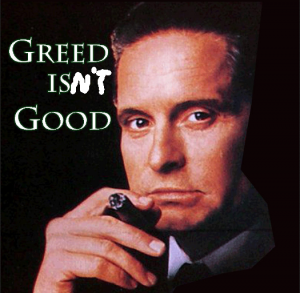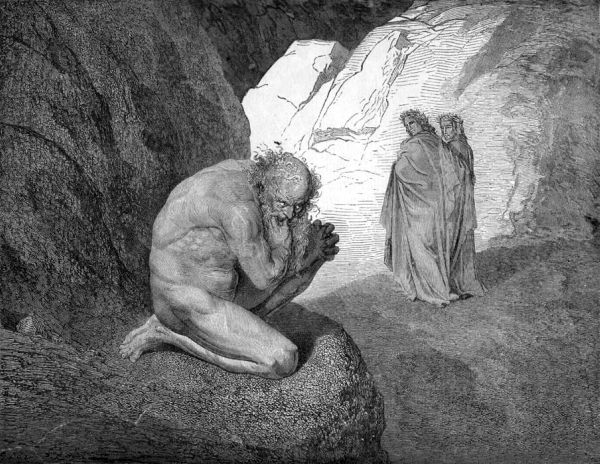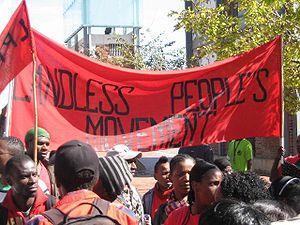Who Am I, Really?It is often quoted, “You are what you eat.” But I am not a tuna sandwich or a quesadilla. Perhaps what we eat gives us the energy to be who we are, but it is not who we are. Rather, it is our thoughts and beliefs that make us who we are. We do not name ourselves according to our culinary preference, but we proudly tell others the names that display what we believe. Our church group (what we believe about God), our political leanings (what we believe about how to help our country), our sports team (what we believe about that team—namely, they are great)—these are the things we talk about to indicate who we are (as well as other things, like occupation)
However, our beliefs are as complex as our thinking, and at times we say we believe something that contradicts what we believe about something else. And we also will say that we believe one thing and do another. I can say that I believe that people should be nice to one another, but if I found out my neighbor took my television without my permission then I might not be so nice to him. My wife would then point out the contradiction between what I say and what I did, and I will explain it to her: “You see, I think that we should generally be nice to each other, but if someone takes something from me, then I don’t have to be nice.” The reasoning may or may not be valid, but I only came up with the reason to excuse what I did. The reality is, what I said I believed originally—“People should be nice to each other,”— is different from what I really believed— “I will be nice to others as long as they are nice to me.”
Given that what we say we believe is so often contradicted by what we do, how do we know what we really believe. I say I believe in Jesus—but do I really? And how do I know? I think that if I make statements of belief—“I believe that Jesus is Lord”, that will be enough. If I know something, “Jesus rose from the dead” or “Airplanes are safe,” does that mean I believe in it?
Evaluating What We Really Believe In Jesus recognized that often what we say and what we believe are two different things. This is why he gave us a test to find the true character of a person—what they really believe in, whether they are really good and bad. Jesus said, “We know a tree by its fruit. We know that a tree is an apple tree because it bears apples. And we know that a fig tree can’t produce pears. Even so, we know what a person is really like by their actions and careless speech.” (Matthew 7:16-20 and 12:33-36). Thus, we know what people really believe by how they behave in certain areas in life.
Below are six areas that, according to Jesus, indicate what we really believe. If we follow God in these areas, then we can say we believe in God. But if we do not, then we must believe in something else—for our actions are a mirror of our hearts.
ActionsAs shown above, what we do with our lives—our work, our response to stressful situations—that’s what really shows who we are. We can say that we love God, but the question is, how do we show it? Sometimes the best way to determine our character is to imagine that a stranger who has never seen us before is presented with a videotape of our whole lives, with the sound off, so they can’t hear our own explanations of our lives. How would that stranger evaluate us? What would characterize us? If we stole, we would certainly be characterized as a thief. But we more often than not excuse ourselves, not wanting our actions to determine who we are—“Sure, I get drunk occasionally, but that doesn’t make me an alcoholic.” “Yes, I have hit my child in anger, but that doesn’t make me a child abuser.” Yet Jesus said that a person shows truly whether they believe in him as to whether they do what he says (Luke 6:46-49)
WealthJesus says that what we do with our money and possessions indicates where our heart is, thus who we are (Luke 12:34). A person can say, “I believe that God will heal me,” but then why does he spend so much money on medicine? A person can say, “My comfort will be in heaven,” but then why does she surround herself with comforts on earth? If we want to see what a person really believes in, we can look at how they spend their money—that will indicate what they think to be most important in life. Jesus said that if we want to show that we believe we will get to heaven, then we need to take a substantial amount of our wealth and give it to the poor—not necessarily the church, unless they are serving the poor (Luke 12:33; Acts 4:34-35)
WordsAs we said above, a person can say one thing and do another. But Jesus said that we should pay attention to people’s careless words—the statements they make when they didn’t have time to plan it out. Often that’s when people’s pride and anger and selfishness flare up. If we are planning a statement, that can be one thing we say, but the statements we use when we are being thoughtless and carefree—those are the words by which we will be judged, for those are the words that show what we really believe and so who we really are. (Matthew 12:35-36)
SecurityAt times we all feel insecure. We are often struck by anxiety and we don’t know where to turn. Where we do turn in those moments of crisis indicates what we trust in or who we think will pull us out of our fear. Perhaps we will turn to a family member—especially if they are wealthy—or a friend. Perhaps we have a habit or addiction that we think will make us feel better. Perhaps we have nothing we can rely on but our anxiety, but we say, “How I wish I had this or that”. That is what we really rely on, the person or object we truly believe in. But Jesus tells us that in our time of crisis, the one we can always count on, the dependable one who we can trust in is God. (John 14:1; Luke 12:30-32). To “believe in” God doesn’t mean to have the correct doctrine, it means that you will count on him in a time of crisis. So whatever we turn to in crisis, that is our real god.
AttitudeGod makes it clear that he wants us to treat everyone according to their well-being. He wants us to do what is good for everyone we meet—whether that person is an evil person or a good one (Luke 6:27-36; Galatians 6:10). We can make a list of who we actually show care for and who we do not. “Yes, I try to help this person whenever I can. This person, though, is a dolt and so I avoid then when possible. I like to assist this kind of person, but this kind I detest and wouldn’t even give them the time of day.” By this test, then, we can often see what limits we place on our belief in God. We believe in God and in his ways when we are around certain people or situations, but in other ones we do not. If people respect us, that’s fine, we can believe in God in that situation. But if someone cusses us out, then we find it difficult to believe in God. For we know that we will be rewarded according to our love, not our doctrinal beliefs.
PromisesWe often make promises and commitments, from appointments to projects we agreed to work on. Sometimes we do not even have a promise to do something, but we have a “social contract” with our family, in which our behavior is determined. And there are many things that we “believe in” that we commit to do, whether it be prayer or a favor for someone at church or visiting a sick person in the hospital. But what we believe in is not found in the promises we make, but in the promises we actually keep. We may “believe in” prayer and make a schedule for us to wake up a bit early to do it. But, when the time comes, we find that we actually believe in sleep more than prayer because the snooze button is hit until the prayer time has vanished. We may “believe in” visiting the sick, and so promise to do it, but when the time comes we find the television too alluring, showing that we believe in our comfort and rest more. Jesus said that we must fulfill our promises and so display our faithfulness, for what we do shows what we believe. This doesn’t mean that we are able to keep all our promises. Sometimes emergencies come up. But we must remember this, whatever we chose to do, that is what we really believe in. (Matthew 21:28-31)
RepentanceOne last thing to note—Jesus is a firm believer in changing one’s ways. We know he believes in change because he forgives people their sin. He displays his belief of changed behavior by accepting those who have repented. Even so, if you evaluate your true beliefs and determine that you haven’t really believed in Jesus, it is not too late to change! Jesus said he will give you his Spirit and he will help you repent from your old life and begin to believe in Him anew! Pray for God’s grace and you will begin to truly believe in Jesus, not just in words, but in your whole life. In that way you will be a new creation, created by God to do actions in light of Jesus!
Evaluate your actions, and determine
what you really believe!












